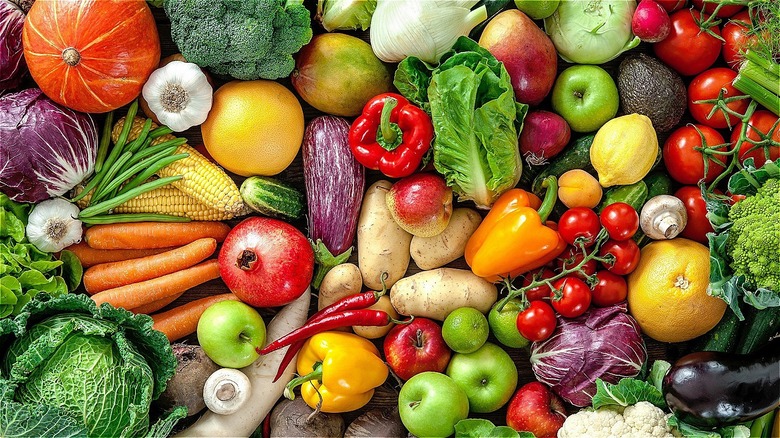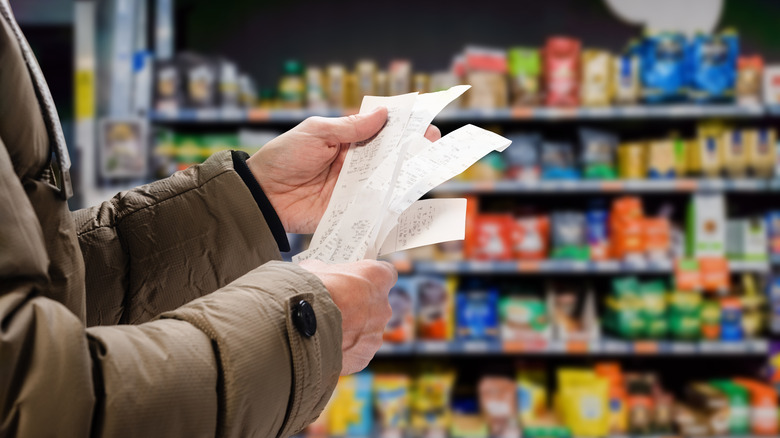Have Higher Food Costs Created A Shift Away From Organic Food?
Sales of organic food in the U.S. have more than doubled over the past decade, but now that the growth is slowing down, some experts are saying higher food prices are to blame. From 2011 to 2021, organic food sales spiked from $25 billion to $57.5 billion, per Food Business News, but in the past few years, these increases have been anything but consistent. After jumping 12% in 2020 during the early months of the pandemic, organic sales grew by a much smaller 2% in 2021 (via Organic Trade Association).
At the same time, as many shoppers are painfully aware, the price of food is inching upward. Sticker shock at the grocery store has been more stark than usual lately for all food products, and food prices are only about to get even worse. Just take eggs, for example. The cost of a dozen eggs has tripled since last year (via TODAY). When it comes to consumers' desires to shop organic, some experts are drawing a straight line between lower organic sales and higher food prices.
Consumers may not have extra money to buy organic
There's no getting around it — organic foods are often more expensive than other groceries. Granted, organic groceries might be getting cheaper: They were only 14.7% pricier than their conventional counterparts in January 2022 compared with a 22.7% price differential in 2021, per Axios, but this still represents the continuing costliness of choosing organic. The costs are higher partly because the supply of organic options is simply lower, but also because the production costs are higher to comply with federal requirements (via U.N. Food and Agriculture Organization).
The reasons consumers buy organic groceries over conventional are complex and rely largely on what options are even available, according to a study in the journal PlosONE, but often boil down to perceived health and environmental benefits that justify higher costs. That said, there are plenty of things everyone gets wrong about organic food that might change your mind.
But now, as money-related stress becomes even more powerful than before, per CNBC, consumers' interest in paying this premium could be in jeopardy. According to a recent analysis from Brightfield Group, which helps track consumers' preferences in wellness categories, just 17% of consumers in the fourth quarter of 2021 said they were willing to buy organics (via Food Dive), which is down 3% from the quarter before. And while this isn't a dramatic drop — yet — it could signal major changes ahead for how food companies respond to the issues consumers care about.

